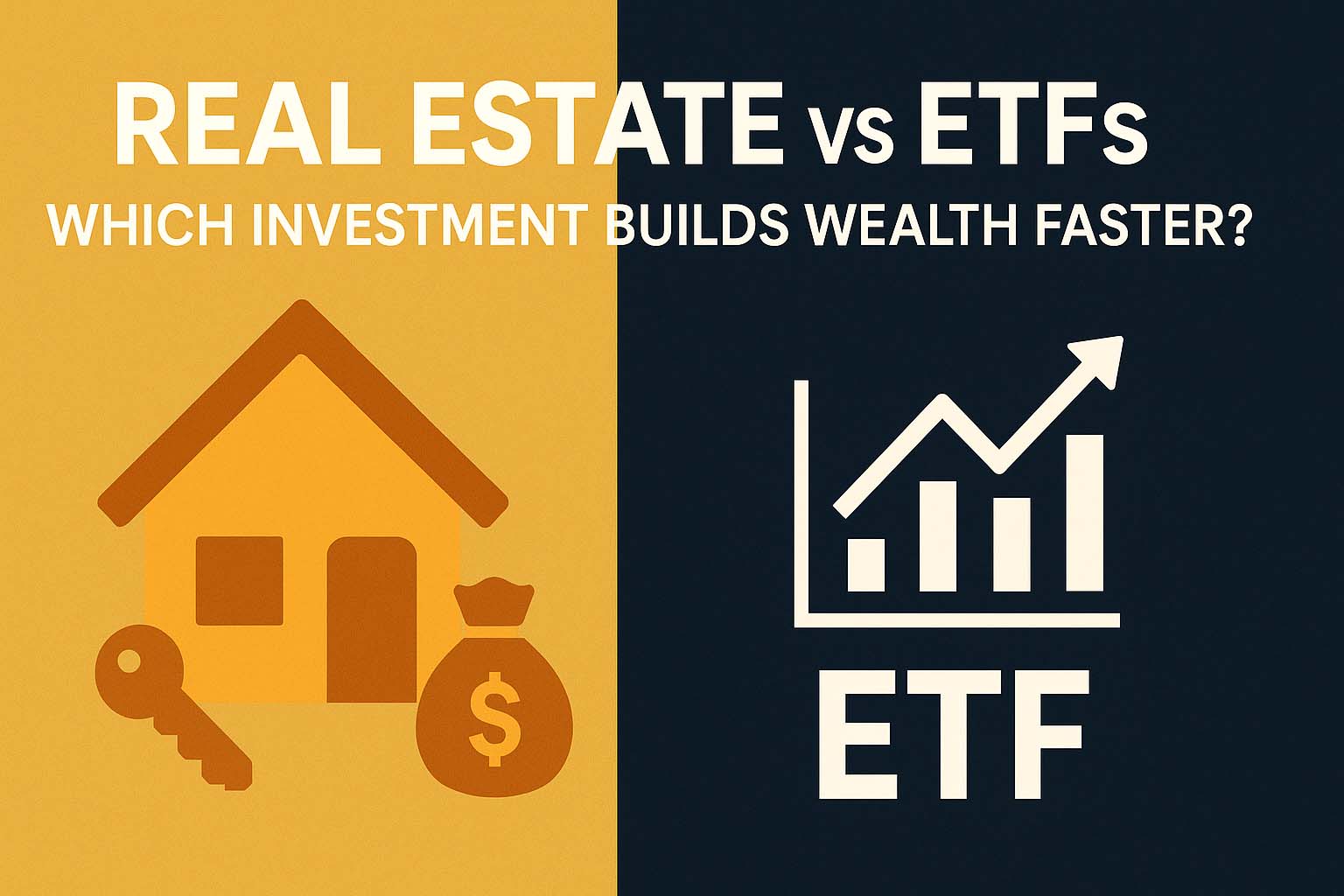When it comes to building wealth, two of the most popular strategies are real estate investing and ETFs (Exchange-Traded Funds). Both offer opportunities for long-term growth, but they work in very different ways. If you’re wondering which one is better — or faster — for building wealth, the answer depends on your goals, risk tolerance, and lifestyle.
Let’s break down the differences, advantages, and drawbacks of each.
What Is Real Estate Investing?
Real estate investing means buying property to generate income or profit. This can include:
- Rental properties (earning monthly rent)
- House flipping (buying and selling for profit)
- Commercial real estate (offices, shops, warehouses)
📈 Pros of Real Estate:
- Tangible asset (you can see and use it).
- Rental income provides steady cash flow.
- Leverage: you can use mortgages to buy property with less upfront cash.
- Historically strong appreciation over decades.
⚠️ Cons of Real Estate:
- Requires high upfront investment.
- Maintenance, taxes, and tenant issues.
- Less liquid — selling a property takes time.
What Are ETFs?
An ETF is a basket of stocks, bonds, or other assets that trades like a stock. For example, the S&P 500 ETF includes 500 of the biggest U.S. companies. By buying one ETF, you own tiny pieces of hundreds of companies.
📈 Pros of ETFs:
- Instant diversification (reduces risk).
- Low cost and easy to buy/sell online.
- Historically solid returns (the S&P 500 averages ~10% annually).
- No maintenance headaches.
⚠️ Cons of ETFs:
- No steady cash flow (unless dividend ETFs).
- Market volatility can cause big swings.
- You can’t use leverage as easily as in real estate.
Which Builds Wealth Faster?
1. Short-Term (5–10 years)
- Real estate can outperform if property values rise quickly and rental demand is strong.
- ETFs, however, may grow steadily but not explosively.
2. Long-Term (20+ years)
- ETFs compound powerfully through dividends and reinvestment.
- Real estate also appreciates, but costs (taxes, repairs, vacancies) eat into profits.
📊 Example:
- $50,000 invested in an S&P 500 ETF over 20 years at 10% annual return = ~$336,000.
- $50,000 down payment on real estate (with leverage) could grow faster if the property appreciates 3–5% yearly and rents cover costs.
Lifestyle & Effort
- Real Estate: Active management — dealing with tenants, repairs, and legal paperwork.
- ETFs: Passive — you can invest from your phone in minutes.
Which Should Beginners Choose?
If you’re just starting and want simplicity, low risk, and flexibility, ETFs are the smarter choice. They’re beginner-friendly, require little capital, and grow steadily over time.
If you have more savings, are willing to manage properties, and like tangible assets, real estate could deliver higher returns — especially with leverage.
Best of Both Worlds
Many successful investors combine both:
- ETFs for passive long-term growth.
- Real estate for cash flow and diversification.
This hybrid strategy gives you stability and faster wealth-building potential.
Final Thoughts
So, which builds wealth faster — real estate or ETFs?
- Real estate can create faster cash flow and leverage-driven growth, but comes with higher risk and effort.
- ETFs compound steadily and require almost no work, but growth may feel slower.
The smartest move is to start with ETFs for stability, then branch into real estate once you have the capital and confidence. That way, your money works for you in both worlds.




